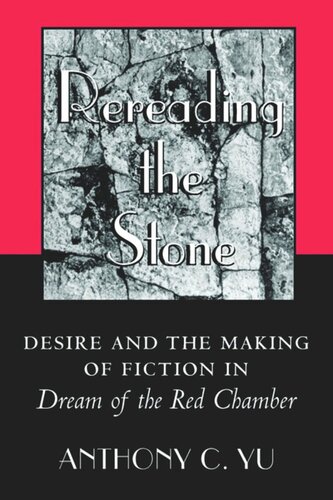

Most ebook files are in PDF format, so you can easily read them using various software such as Foxit Reader or directly on the Google Chrome browser.
Some ebook files are released by publishers in other formats such as .awz, .mobi, .epub, .fb2, etc. You may need to install specific software to read these formats on mobile/PC, such as Calibre.
Please read the tutorial at this link: https://ebookbell.com/faq
We offer FREE conversion to the popular formats you request; however, this may take some time. Therefore, right after payment, please email us, and we will try to provide the service as quickly as possible.
For some exceptional file formats or broken links (if any), please refrain from opening any disputes. Instead, email us first, and we will try to assist within a maximum of 6 hours.
EbookBell Team

4.0
26 reviewsThe eighteenth-century Hongloumeng, known in English as Dream of the Red Chamber or The Story of the Stone, is generally considered to be the greatest of Chinese novels--one that masterfully blends realism and romance, psychological motivation and fate, daily life and mythical occurrences, as it narrates the decline of a powerful Chinese family. In this path-breaking study, Anthony Yu goes beyond the customary view of Hongloumeng as a vivid reflection of late imperial Chinese culture by examining the novel as a story about fictive representation. Through a maze of literary devices, the novel challenges the authority of history as well as referential biases in reading. At the heart of Hongloumeng, Yu argues, is the narration of desire. Desire appears in this tale as the defining trait and problem of human beings and at the same time shapes the novel's literary invention and effect. According to Yu, this focalizing treatment of desire may well be Hongloumeng's most distinctive accomplishment.
Through close readings of selected episodes, Yu analyzes principal motifs of the narrative, such as dream, mirror, literature, religious enlightenment, and rhetorical reflexivity in relation to fictive representation. He contextualizes his discussions with a comprehensive genealogy of qing--desire, disposition, sentiment, feeling--a concept of fundamental importance in historical Chinese culture, and shows how the text ingeniously exploits its multiple meanings. Spanning a wide range of comparative literary sources, Yu creates a new conceptual framework in which to reevaluate this masterpiece.